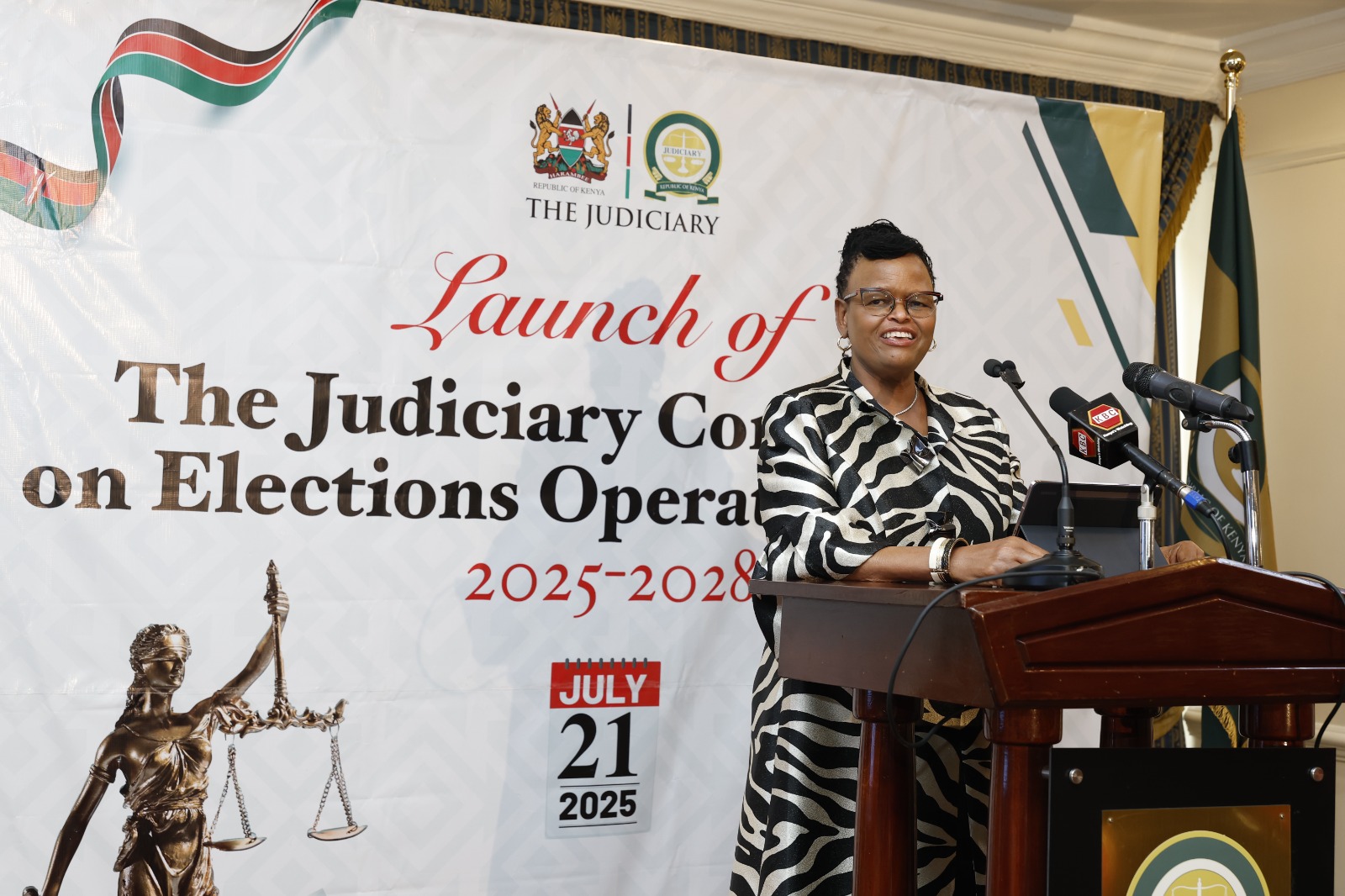
Judiciary publishes manual to guide handling of 2027 poll disputes » Capital News
NAIROBI, Kenya, Jul 22 — The Judiciary has published an operational plan to streamline the handling of election disputes ahead of the 2027 General Election.
Chief Justice Martha Koome unveiled the manual on Monday as she reiterated the Judiciary’s commitment to credible and timely electoral justice.
The Judiciary Committee on Elections (JCE) Operational Plan 2025–2028 outlines a roadmap for strengthening legal, institutional, and administrative frameworks guiding the resolution of electoral disputes across all court levels.
Koome described the plan as a “crucial building block” toward ensuring court excellence and public trust in the Judiciary’s ability to resolve politically sensitive disputes.
The plan comes amid mounting national focus on the independence of the Judiciary and the role of courts in safeguarding democratic processes.
It will guide preparation, coordination, and execution of Electoral Dispute Resolution (EDR) processes before, during, and after the 2027 polls.
“This document sets the benchmarks for how we intend to prepare, act, and evaluate our performance during the 2027 electoral cycle,” Supreme Court Judge Mohammed Ibrahim, who chairs the Judiciary Committee on Elections, said at the launch.
Under five core thematic areas, the plan sets out strategies to address legal ambiguities through law reform, strengthen capacity through training, enhance public awareness, improve infrastructure including an upgrade of e-filing system and resource mobilization to bridge funding gaps.
Lessons from the past
The Judiciary unveiled the plan even as JCE data showed a decline in electoral disputes from previous cycles.
The Committee documented 540 pre-election and 389 post-election cases in 2017, compared to 314 and 222 respectively in 2022—a trend the Judiciary attributes to growing confidence in the EDR framework and legal reforms.
However, the plan acknowledges persistent challenges, including underfunding, security threats, infrastructural gaps, and public misinformation.
To address the challenges, the JCE intends to ramp up its stakeholder engagement, especially with Parliament, the Independent Electoral and Boundaries Commission (IEBC), and civil society.
Institutional memory and funding
Under the newly-unveiled plan, the Judiciary will deploy permanent and ad hoc staff, including legal researchers and ICT officers, to support courts in real-time.
It also plans to upgrade its monitoring and evaluation framework to track progress and capture feedback.
“Institutional memory is essential. We must preserve lessons learned and carry them forward through structured staffing and systematic knowledge management,” the plan notes.
The JCE, now a designated spending unit, estimates a budget of Sh903.8 million for the plan’s full implementation through 2029, with the largest share earmarked for training and knowledge management.
Periodic reporting and evaluations are scheduled at weekly, monthly, quarterly, and annual intervals, culminating in mid-term and final reviews before and after the 2027 elections.
As electoral tensions loom and reforms remain a national conversation, the Judiciary hopes its operational plan will signal readiness and inspire confidence in its role as arbiter of Kenya’s democratic process.
“Judicial preparedness is not an option—it’s a constitutional necessity,” said Koome.